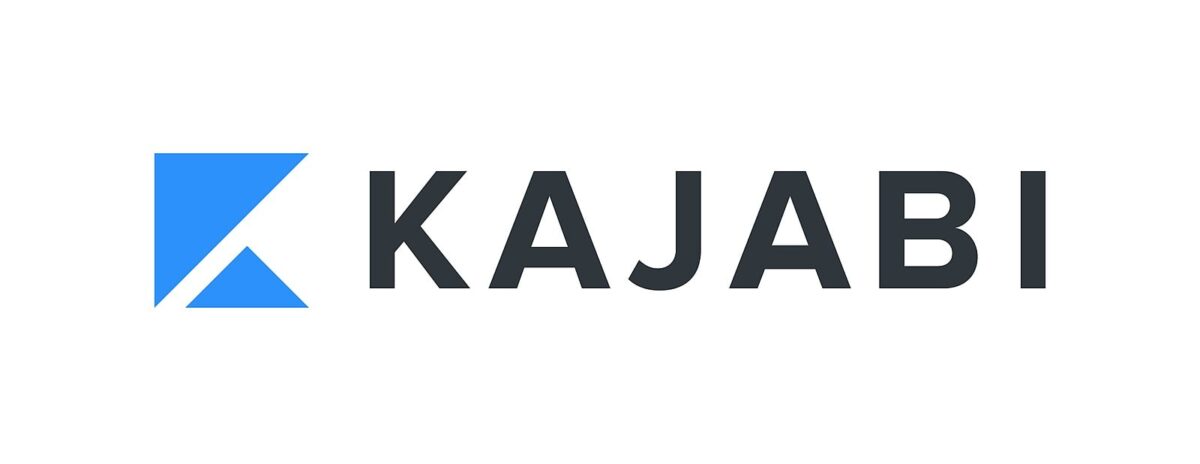10 Best Online community Platforms of 2026
Discover the top 10 online community platforms of 2026 and find the perfect tool to grow, engage, and inspire your audience!

Choosing best community platform
Why Online Community Platform Matters
In 2026, online communities are no longer just an add-on to your business—they’re the heart of it. Think about it: in a world where we’re more connected than ever, what really matters? Connection. People want to feel like they’re part of something bigger, whether it’s a group of like-minded individuals, a loyal customer base, or a global movement. If you’ve got an idea to share, a product to sell, or a vision to spread, you need a customer community platform that’s engaged, passionate, and ready to support you.
But here’s the challenge: building that kind of community isn’t as simple as inviting people to join and hoping for the best. It’s like throwing a party. You can invite members, but if the venue is wrong—too small, too loud, too chaotic—no one’s going to have a good time. The same goes for best online community platforms. The platform you choose to host your customer community can make or break your success. Pick the right one, and it’s like finding the perfect venue—your community will expand, conversations will flow, and your business will grow. Choose the wrong one, and it could feel like you’re constantly swimming upstream to keep people engaged.
That’s where this article comes in. We’ve done the legwork to save you time and headaches. In the following sections, we’ll take a close look at the 10 best online community platforms. Each platform has its own unique strengths and quirks, and we’re here to help you figure out which one aligns best with your needs. Whether you’re a startup founder, a content creator, or an entrepreneur looking to bring people together, this guide will provide you with the insights you need to make an informed decision.
Summary Table: Online Community Platforms Comparison
| Platform | Ease of Use | Customization | Monetization | Engagement | Scalability | Content Control | Integration | Security | Average Score |
|---|---|---|---|---|---|---|---|---|---|
| Scrile Connect | 9 | 9 | 9 | 8 | 8 | 8 | 7 | 8 | 8.3 |
| Mighty Networks | 8 | 9 | 10 | 9 | 8 | 9 | 7 | 8 | 8.1 |
| Circle | 9 | 8 | 9 | 8 | 8 | 9 | 7 | 8 | 8.1 |
| Tribe | 9 | 9 | 7 | 8 | 9 | 8 | 7 | 8 | 7.9 |
| Kajabi | 7 | 6 | 10 | 6 | 8 | 8 | 8 | 9 | 7.8 |
| Discourse | 8 | 9 | 4 | 8 | 9 | 9 | 7 | 8 | 7.3 |
| Vanilla Forums | 7 | 7 | 6 | 8 | 8 | 8 | 7 | 8 | 7.3 |
| Twist | 8 | 6 | 3 | 7 | 7 | 8 | 6 | 8 | 6.5 |
| Forums | 6 | 5 | 4 | 7 | 8 | 6 | 5 | 7 | 6.1 |
| Discord | 7 | 5 | 4 | 9 | 7 | 4 | 6 | 6 | 6.0 |
| 5 | 3 | 2 | 8 | 6 | 4 | 2 | 6 | 4.5 | |
| Facebook Groups | 7 | 2 | 3 | 6 | 5 | 3 | 4 | 4 | 4.3 |
Note: Scores are out of 10. The Average Score is the mean of the individual criterion scores, reflecting each platform’s overall performance as evaluated in the article.
This table provides a concise overview of the 11 platforms analyzed, making it easier for readers to compare their strengths and weaknesses across all key criteria. Scrile Connect leads with an average score of 8.3, reflecting its balanced excellence, particularly in customization and monetization. Mighty Networks and Circle tie at 8.1, excelling in engagement and content control, respectively. Platforms like Reddit and Facebook Groups, while strong in engagement and ease of use, lag in customization and monetization, resulting in lower average scores. This summary enhances the article by offering a quick-reference tool for decision-making, aligning with its goal of helping readers choose the best platform for their needs.
What is an online community platform
Whether you’re building a place for passionate gamers, loyal customers, or curious learners, the community builder you choose is going to be your virtual home base. And like any good home, it needs to fit just right. Here’s a list of the top 10 community platforms, grouped by what they do best, so you can find the perfect match for your needs.
Social and General Community Platforms

Facebook Groups
This is your go-to if you need a wide net. Facebook Groups are perfect for creating broad, inclusive customer communities—whether it’s a local parents’ group or a global network of DIY enthusiasts. The interface is familiar, the reach is massive, but keep in mind, you’re playing by Facebook’s rules.
Reddit
For those who thrive on niche interests, Reddit is where it’s at. If you’re starting a community where detailed discussions and a bit of healthy debate are key, Reddit’s upvote/downvote system and threaded comments make it easy to keep the conversation flowing. Plus, there’s a subreddit for just about everything.
Discord
Once just for gamers, now for everyone. Discord is ideal if your online community needs real-time communication—think chat, voice, video communication, the whole works. Whether you’re running a study group, a fan club, or a collaboration space for developers, Discord has the tools to keep everyone connected and engaged.
Creator and Monetization-Focused Platforms

Mighty Networks
If you’re a creator or entrepreneur looking to build a community that also pays the bills, Mighty Networks is your platform. It’s designed to help you create not just a community, but a business. Courses, events, memberships—it’s all there. Perfect for when you want to turn your passion into profit.
Circle
Circle is like Mighty Networks’ minimalist cousin. It’s sleek, simple, and designed for creators who want to build a strong, branded community around their content. Think of it as your very own community members-only club where people come to learn, share, and connect.
Kajabi
Kajabi is the heavy hitter in the online course world, but it also packs a punch when it comes to community. If you’re teaching, coaching, or creating digital products, Kajabi offers a one-stop shop for building a community around your offerings. It’s where education meets engagement.
Professional and Business Community Platforms

Twist
Twist is Slack’s calmer, more organized sibling. It’s designed for teams that value deep work and asynchronous communication. If your community members are scattered across time zones and you want to keep the noise down, Twist is the place to go for focused, meaningful interactions.
Discourse
For those who love a good forum (yes, they still exist), Discourse is the way to go. It’s ideal for membership communities built around long-form discussions, where every thread is a deep dive. Whether it’s a professional group or a hobbyist forum, Discourse is where thoughtful conversation happens.
Branded and Customizable Community Platforms

Tribe
If brand is everything to you, Tribe lets you create a community that feels like a true extension of your brand. It’s flexible, customizable, and integrates seamlessly with the tools you’re already using. Perfect for companies that want their online community platform to be more than just a place to chat.
Vanilla Forums
Vanilla Forums is all about customization and control. Whether you’re building a customer success hub, a product feedback forum, or a fan community, Vanilla lets you shape the experience exactly how you want it. It’s a solid choice for businesses that need a tailored online community platform.
Choosing the Best Online Community Platform

Choosing the right online community platform isn’t just about finding a tool—it’s about creating the perfect environment for your members to thrive. Whether you’re starting small or aiming big, these are the key factors that will determine if your community takes off or falls flat:
Ease of Use
A platform should make things easier, not harder. If the interface is confusing or clunky, your community members won’t stick around. You need a user-friendly setup that works for everyone, from your tech-savvy members to those who need a little hand-holding. And it’s not just about the users—community managers need to find it simple too. Think drag-and-drop customization, clear analytics, and an intuitive dashboard that doesn’t require a degree to figure out.
Customization Options
Your community is unique, and your platform should be too. The ability to fully customize your platform—whether it’s branding, design, or user experience—makes a huge difference. No one wants a cookie-cutter community that looks just like everyone else’s. A good platform should let you tailor the look, feel, and functionality to align with your custom domain. From themes and layouts to custom features, you should be able to make it your own.
Monetization Features
If you’re planning to turn your community into a business, monetization tools are non-negotiable. Look for best community platforms that offer flexible ways to generate income—whether it’s through paid memberships, subscription models, or one-time purchases. Built-in payment gateways and options like pay-per-view content, private chats, or live streams are a big bonus. It’s not just about having monetization tools, though—it’s about having flexible tools that work for your business model.
Engagement Tools
A community thrives on interaction. The platform should provide plenty of ways for members to connect, whether it’s through forums, live chat, direct messaging, or even interactive features like polls and Q&A sessions. Engagement tools keep the conversation going and help build a sense of belonging. Without them, your community might feel more like a ghost town. Think of platform features that make it easy for users to participate—creating reasons for them to keep coming back.
Scalability
No one starts a community hoping it’ll stay small forever. Whether you’re launching with a dozen members or a thousand, you need a platform that can grow with you. Scalability means handling larger groups of users, offering more advanced tools as your needs evolve, and ensuring that the platform’s performance remains smooth as the community expands. You want a platform that won’t break a sweat when your member base takes off.
Content Control
Owning your content is critical. The platform you choose should give you full control over what you post, how it’s distributed, and how it’s monetized. Some platforms may take a cut of your profits or limit your ability to control access to your content. It’s essential to pick one that allows you to manage your community on your terms, without unpredictable changes in policy or fees.
Integration Capabilities
You’ll probably use other tools to run your business, so it’s essential that best community platforms plays well with them. Integration with CRMs, email marketing platforms, payment processors, and other key tools should be a priority. The ability to sync your community with the tools you already use can save time and make your overall operations smoother.
Security and Privacy
Trust is everything in a community. You need a platform that takes security seriously—whether it’s protecting personal data, offering secure payment options, or ensuring privacy for your members. Look for platforms that prioritize secure access controls, data encryption, and compliance with global privacy regulations like GDPR. Peace of mind for both you and your members goes a long way in fostering a healthy, engaged community.
Facebook Groups as a Community Platform

Facebook Groups is one of the most widely-used community platforms, and it’s often the first place people turn when starting an online community. But how does it really stack up when measured against other platforms? Let’s take a closer look using the criteria we’ve mentioned, and we’ll give it a score from 1 to 10 for each category.
Ease of Use
Facebook Groups excels in accessibility. Everyone’s already on Facebook, so joining a group is pretty much seamless. Managing the group is also straightforward—posting content, creating polls, and going live are all easy. However, as your group grows larger, the lack of advanced management tools can make it hard to stay organized. Basic moderation features work for smaller communities, but admins often find themselves struggling to maintain order in large, active groups.
Score: 7/10
Customization Options
Customization is almost non-existent on Facebook Groups. You can’t tailor the design or branding beyond a group name and a cover photo. Every group looks and feels the same, regardless of its purpose. This is a big limitation if you’re building a community to reflect your brand or offer a unique experience. In contrast, platforms like Circle or Mighty Networks offer much more flexibility in terms of design and structure.
Score: 2/10
Monetization Features
Facebook Groups offers very limited monetization options. There’s no direct way to charge for group memberships or sell content within the platform itself. You’d need to use external tools or hacks, like PayPal links or Patreon, to make money through your group. Other platforms, like Kajabi or Mighty Networks, have built-in monetization features, making Facebook Groups a weak choice if revenue generation is a key part of your strategy.
Score: 3/10
Engagement Tools
Facebook Groups does offer a solid set of engagement tools, including posts, polls, events, and live streaming. However, it lacks some more advanced tools that other platforms provide, such as integrated video conferencing (like on Discord) or specialized member engagement analytics. Facebook’s algorithm can also make it tricky to ensure that all community members see your posts, which can hurt engagement in larger groups.
Score: 6/10
Scalability
Scaling a Facebook Group can be challenging. While the platform itself can handle large numbers of users, managing a growing community becomes cumbersome. There are limited automation tools, and once your group reaches a certain size, you may find yourself needing additional resources or admins just to keep everything running smoothly. Compared to a more community-focused platform like Mighty Networks or Circle, Facebook Groups lacks the scalability to effectively manage a large community.
Score: 5/10
Content Control
One of the biggest downsides of Facebook Groups is the lack of control over your content. Facebook owns everything that happens on its platform, and you’re subject to its rules and algorithm. You can lose content or even the group itself if Facebook decides to change policies, ban certain topics, or simply shadow-ban your posts. Other platforms, especially open-source options like Discourse or Tribe, give you much more control over your content and how it’s presented.
Score: 3/10
Integration Capabilities
Integration with other tools is limited. Facebook Groups doesn’t naturally integrate with CRMs, email marketing software, or other third-party tools that are critical for growing and managing a business. This forces you to either use workarounds or limit your external integrations. Other platforms like Circle and Kajabi offer much smoother integrations with a variety of business tools.
Score: 4/10
Security and Privacy
Facebook’s privacy policies have been the subject of scrutiny for years. While group admins have some control over privacy settings (like making a group public, closed, or secret), the platform itself is notorious for its data collection practices. If privacy and security are top priorities for your community, you may want to consider platforms like Tribe or Discourse, which offer more robust security features.
Score: 4/10
Facebook Groups Summary:
While Facebook Groups is easy to set up and use, it falls short in key areas like customization, monetization, and content control. It’s a good option for small, casual communities that don’t need advanced features, but if you’re looking to scale, monetize, or create a branded experience, you’ll likely outgrow Facebook Groups quickly.
Total Average Score: 4.3/10
Reddit as Community Platform

Reddit is a bit like the Wild West of community platforms. It’s huge, chaotic, and somehow still functional. With over 430 million monthly active users and thousands of niche subreddits, Reddit is one of the best online community platforms on the internet. But is it the right place to build a community-focused business? Let’s break it down.
Ease of Use
Reddit isn’t exactly known for being user-friendly. The interface looks like it was designed in 2008 and then forgotten about. Sure, once you get the hang of it, navigating subreddits, upvoting posts, and leaving comments becomes second nature—but that learning curve can be steep for new users. For community managers, there’s not much built-in structure or support. Running a subreddit is mostly about managing user-generated content, which works well for certain communities, but can get overwhelming if your subreddit becomes popular.
Score: 5/10
Customization Options
Reddit doesn’t give you much to work with in terms of customization. You can tweak the appearance of your subreddit with a banner and adjust some basic design elements, but that’s about it. You won’t be able to fully brand your community or create a unique look and feel that stands out. Compare this to platforms like Circle or Mighty Networks, where customization is a key selling point, and Reddit falls far behind.
Score: 3/10
Monetization Features
Here’s the deal: Reddit isn’t built for monetization. If you’re hoping to charge for membership, sell content, or even run ads within your subreddit, you’re out of luck. While some users monetize indirectly by linking to external services like Patreon or OnlyFans, Reddit doesn’t offer any native tools for monetization. This makes it a poor choice for community builders who are looking to turn a profit as it missing monetization features.
Score: 2/10
Engagement Tools
Engagement is where Reddit shines. The upvote/downvote system, comment threads, and live chats create a highly interactive environment. Reddit users are famously engaged—they’re there to debate, share ideas, and participate. However, Reddit’s tools are a bit primitive compared to other platforms. There are no built-in polls, Q&A systems, or gamification tools, which limits the ways you can interact with your community. Still, for sheer volume of conversation, Reddit delivers.
Score: 8/10
Scalability
Reddit can handle massive communities. Some subreddits have millions of members, and Reddit’s infrastructure is built to scale. However, managing a large subreddit is a different story. Without more advanced tools for moderation or community management, keeping things organized can become a nightmare as your community grows. In comparison, platforms like Discourse or Mighty Networks offer more structured systems for scaling up.
Score: 6/10
Content Control
Here’s the catch: you don’t really own your content on Reddit. It’s all subject to Reddit’s rules and moderation policies, and if Reddit’s higher-ups decide to ban your subreddit, there’s not much you can do about it. Plus, the upvote/downvote system means that your best content may not always surface unless your users deem it valuable. For businesses that want to maintain control over their community platform app or community software, Reddit is risky.
Score: 4/10
Integration Capabilities
Integration with other tools? Practically non-existent. Reddit is its own island. You can link to external websites or services, but there’s no native support for integrating with CRMs, email marketing, or payment systems. If you need a seamless connection between your community and your business tools, you’ll have to look elsewhere.
Score: 2/10
Security and Privacy
Reddit does a decent job with security. User anonymity is one of the core appeals, and there are options for creating private subreddits. However, Reddit’s data policies are still in line with most large social media platforms, meaning there’s always a level of risk when it comes to privacy. If security and data protection are critical to your community, a dedicated community software platform like Tribe or Discourse might be a better bet.
Score: 6/10
Reddit Summary:
Reddit is fantastic for organic engagement and sheer user volume, but its limitations in customization, monetization, and content control make it a tough sell for businesses. If your goal is to build a monetized, branded community platform app, Reddit probably isn’t the right place. However, for passionate discussions and a highly interactive community, it’s hard to beat.
Total Average Score: 4.5/10
Discord as Community Platform

Discord started as a gamer’s paradise but has since expanded to become a versatile customer community for just about any niche. Whether you’re building a community around crypto, productivity hacks, or online courses, Discord has become a top choice for people looking to interact in real-time. But how does Discord hold up as a best community platform when it comes to all the features? Let’s break it down by the same criteria and score it out of 10.
Ease of Use
Discord’s interface is user-friendly, but not immediately intuitive for everyone. It can feel a little overwhelming at first, especially with its emphasis on real-time communication and the sheer number of channels available in larger servers. But once you get the hang of it, navigating channels, voice chats, and direct messages becomes smooth. For community managers, it’s pretty easy to set up, but the complexity can scale with the size of your customer community. Overall, it’s easier than Reddit but more complex than Facebook Groups.
Score: 7/10
Customization Options
Discord gives you some interesting customization options, but it’s not fully open to branding. You can set up channels, assign roles, and use bots to automate functions, which adds a unique flavor to each server. However, you can’t deeply customize the look and feel beyond a few aesthetic tweaks. Compared to platforms like Circle or Mighty Networks that allow for branded experiences, Discord is functional but not flashy.
Score: 5/10
Monetization Features
Monetization isn’t Discord’s strong suit. While it’s possible to set up premium servers through Patreon or build paid communities with third-party services, Discord doesn’t have native tools for selling content or memberships. This makes it less convenient for community builders who are looking for seamless community features like those offered by Kajabi or Mighty Networks. You can monetize on Discord, but it’s definitely more work.
Score: 4/10
Engagement Tools
Discord absolutely nails engagement. The platform was built for real-time interaction, and it shows. Voice channels, video calls, text chat, screen sharing, and integrations with external services create endless opportunities for interaction. Add bots into the mix, and you’ve got a highly customizable engagement experience. The downside? It can feel a little chaotic, especially in larger communities, and moderation tools aren’t as advanced as they could be.
Score: 9/10
Scalability
Discord scales beautifully in terms of infrastructure. You can run a server with thousands of active members without breaking a sweat. The platform is built to handle real-time communication for large groups. However, managing larger communities can become tricky without good moderation tools. You’ll need to rely on bots and role systems to keep things under control. While Discord works for scaling, it lacks some of the automation and organization tools that make platforms like Circle or Mighty Networks easier to manage at scale.
Score: 7/10
Content Control
You don’t own your content on Discord. It lives on their servers, and if they change policies or your server gets reported, you could lose everything. This is a problem for community managers who want complete control over their platform, which is where open-source platforms like Discourse or Tribe are much stronger. While Discord offers some control over your server’s moderation and content flow, the lack of true ownership is a concern for long-term businesses.
Score: 4/10
Integration Capabilities
Discord integrates with a lot of external services, which is one of its major advantages. From bots to automate tasks, to integrations with YouTube, Twitch, and Patreon, the platform offers flexibility. However, if you need more business-focused integrations like CRMs or email marketing tools, you’re out of luck. In that area, other community platformoptions like Kajabi or Circle offer much better integration with the rest of your tech stack.
Score: 6/10
Security and Privacy
Discord offers solid privacy settings for its servers, allowing admins to create invite-only spaces and moderate user access. However, much like other large social platforms, you’re still subject to Discord’s overarching policies, which means you don’t have full control. For communities that require strict privacy, or that are handling sensitive data, a platform like Tribe or Discourse might offer more security.
Score: 6/10
Discord Summary
Discord excels at real-time engagement and offers solid scalability for growing communities. However, it lacks native monetization features, branding capabilities, and true content ownership. If you’re looking to build an active, highly engaged community, Discord is hard to beat—but if you need more control over monetization or integrations, you may find yourself wanting more.
Total Average Score: 6/10
Mighty Networks
Mighty Networks is like the Swiss Army knife of community platforms. It’s designed for creators and entrepreneurs who want to build their own branded community without all the hassles of managing a forum. With platform features aimed at monetization, member engagement, and content control, Mighty Networks has positioned itself as a serious player in the community software arena. But does it live up to the hype? Let’s break it down by our established criteria.
Ease of Use
Mighty Networks is intuitive for both community managers and members. Setting up a network is a breeze, and the platform is designed with user experience in mind. New members can easily navigate through courses, discussions, and events without feeling overwhelmed. The user-friendly interface makes it simple to create and manage content, making it a solid choice for entrepreneurs looking to dive into the world of community building without a steep learning curve.
Score: 8/10
Customization Options
When it comes to customization, Mighty Networks shines. You can tailor the look and feel of your community to match your brand, from colors to logos. The ability to create custom landing pages and course layouts allows you to create a unique experience for your members. Unlike platforms like Facebook Groups, where you’re stuck with a cookie-cutter design, Mighty Networks lets your creativity run wild.
Score: 9/10
Monetization Features
Mighty Networks takes the cake with its monetization capabilities. You can easily set up paid memberships, create online courses, and sell digital products—all from within the platform. This is a major advantage for entrepreneurs looking to turn their community into a revenue-generating machine. Compared to other platforms like Discord or Reddit, which offer little in terms of built-in monetization tools, Mighty Networks stands out as a robust community platform for business.
Score: 10/10
Engagement Tools
Engagement is where Mighty Networks really shines. It provides a plethora of features like polls, discussions, live events, and member profiles that facilitate interaction. You can create sub-groups based on interests, run challenges, or host webinars, all designed to keep members active and engaged. Compared to Reddit’s chaotic interaction style, Mighty Networks offers a structured environment that encourages meaningful connections.
Score: 9/10
Scalability
Mighty Networks is built to scale, making it suitable for small communities and larger networks alike. Whether you’re starting with a handful of members or looking to grow to thousands, the platform can handle it. As your community expands, you can easily add new features and content without compromising user experience. However, if your community grows to a massive scale, some advanced management tools may feel lacking compared to others like Discourse.
Score: 8/10
Content Control
One of the most appealing aspects of Mighty Networks is that you truly own your content. You control what gets shared, how it gets shared, and can even set up your own rules for member interactions. This level of control is refreshing, especially compared to platforms like Reddit or Discord, where you’re at the mercy of their policies. For businesses that prioritize ownership and control over their community, Mighty Networks is a great fit.
Score: 9/10
Integration Capabilities
Mighty Networks has decent integration capabilities, allowing you to connect with tools like Mailchimp, Zoom, and other external services. However, it’s not as robust as some dedicated community software platforms like Tribe, which offer extensive integration options. If you need seamless connections with CRMs or marketing tools, you may have to get a little creative.
Score: 7/10
Security and Privacy
When it comes to security, Mighty Networks takes it seriously. The platform offers privacy settings that allow you to control who can see your content and interact within your community. This level of control is essential for businesses that want to ensure a safe environment for their members. While no platform is perfect, Mighty Networks does a commendable job of providing a secure community experience.
Score: 8/10
Mighty Networks Summary
Mighty Networks stands out as an exceptional customer community for entrepreneurs and creators. With its user-friendly interface, robust monetization features, and excellent customization options, it’s a top choice for those looking to build a vibrant, engaging community. While it has some limitations in integration capabilities, the benefits far outweigh the downsides for most users. If you’re serious about turning your community into a thriving business, Mighty Networks should be high on your list.
Total Average Score: 8.1/10
Circle

Circle has been gaining traction as a modern community platform, catering primarily to creators and entrepreneurs looking for a sleek, user-friendly interface combined with powerful community features. With its focus on building engaged, interactive communities, Circle positions itself as a serious contender among community software options. But how does it stack up against the competition? Let’s dive into the details.
Ease of Use
Circle’s interface is clean and intuitive, making it easy for both community managers and members to navigate. The setup process is straightforward, allowing you to create spaces, discussions, and events with minimal friction. Members can quickly find what they’re looking for, whether it’s a forum post or a live event. Compared to Discord’s sometimes chaotic structure, Circle makes for a smoother onboarding experience.
Score: 9/10
Customization Options
Circle excels in customization. You can tailor your community’s appearance to fit your brand, from color schemes to custom URLs. This is a huge win for those looking to establish a distinct identity. Unlike Facebook Groups, which leave you with little room to customize, Circle offers a wealth of options to create a unique environment for your members. However, it doesn’t quite reach the level of Mighty Networks in terms of complete brand immersion.
Score: 8/10
Monetization Features
When it comes to monetization, Circle shines. You can easily set up paid memberships and offer exclusive content to your members, all within the platform. This flexibility makes it a compelling choice for creators who want to turn their passion into profit. Compared to platforms like Discord, which lack native monetization tools, Circle makes it simple to charge for access to your community and content.
Score: 9/10
Engagement Tools
Circle offers a variety of engagement tools that keep the community lively. Members can participate in discussions, join events, and even take part in polls. The platform’s focus on interaction makes it easier to foster a sense of belonging among members. While Discord excels at real-time communication, Circle strikes a balance by encouraging thoughtful discussion and community building, making it a solid choice for more structured interactions.
Score: 8/10
Scalability
Circle is built to scale, allowing communities to grow without losing the essence of engagement. Whether you’re starting small or planning for a massive influx of members, Circle can handle it. The platform supports the addition of new spaces and features as your community evolves. However, as your community grows, the challenge will be to maintain the same level of engagement and personalization, which might require additional effort.
Score: 8/10
Content Control
Content control is one of Circle’s standout features. You own your content, and the platform allows you to set rules for member interactions and content visibility. This level of control is particularly important for businesses that need to manage their intellectual property closely. Compared to platforms like Reddit, where content can sometimes feel like it’s out of your hands, Circle provides a reassuring sense of ownership.
Score: 9/10
Integration Capabilities
Circle offers a range of integrations with popular tools, allowing you to connect with platforms like Zapier, which expands its functionality. This is a strong point for Circle as it enables community managers to streamline processes and enhance their workflow. However, if you need extensive integrations with CRM tools or advanced marketing features, you might find Circle somewhat limited compared to platforms like Tribe or Discourse.
Score: 7/10
Security and Privacy
Circle prioritizes security and privacy, allowing community managers to set member permissions and control who sees what. This is crucial for maintaining a safe space for discussions and interactions. While it offers good privacy settings, it’s always wise to stay vigilant, as no platform is entirely foolproof. Compared to less structured environments like Facebook Groups, Circle offers a more secure setting for community interactions.
Score: 8/10
Circle Summary
Circle stands out as a powerful community platform that combines ease of use, excellent monetization features, and strong content control. Its clean interface and customizable options make it appealing for creators and entrepreneurs who want to establish a unique, engaging community. While it may not have the same breadth of integrations as some competitors, its strengths in user experience and monetization position it as a top choice for those serious about building their community.
Total Average Score: 8.1/10
Kajabi

Kajabi is often hailed as the all-in-one platform for creators, entrepreneurs, and educators looking to build and grow their businesses. While it’s primarily known for its robust course creation and marketing tools, Kajabi also offers a community feature that’s worth exploring. So, how does it fare when stacked against other community software? Let’s break it down.
Ease of Use
Kajabi offers a straightforward user interface that simplifies the process of building your online community. The dashboard is organized, and users can easily navigate between course creation, email marketing, and community management. However, the multitude of features might overwhelm newcomers who are solely focused on community building. For someone diving into the platform primarily for its community capabilities, it may take a bit longer to acclimate compared to the more streamlined experiences of platforms like Circle or Mighty Networks.
Score: 7/10
Customization Options
Customization on Kajabi is impressive when it comes to branding your courses and marketing materials, but the limited community features are somewhat less flexible. While you can modify certain aspects of your community space, the options may feel limited compared to the broader design capabilities found on platforms like Mighty Networks. Kajabi’s strength lies in its marketing tools, which means the community aspect feels secondary.
Score: 6/10
Monetization Features
Kajabi shines in the monetization department. You can easily set up paid memberships, sell courses, and bundle content to maximize revenue. This robust monetization capability is a standout feature that many other platforms struggle to match. Unlike Discord or even Circle, which require additional workarounds for monetization, Kajabi provides built-in tools that make turning your community into a revenue stream a seamless process.
Score: 10/10
Engagement Tools
When it comes to engagement, Kajabi provides basic features like discussions and comments on posts, but it lacks some of the interactive capabilities found in dedicated community platforms. While you can engage your audience through course comments and feedback, it doesn’t foster the same level of interaction as platforms like Circle or Discord. For more dynamic community engagement, you might find Kajabi wanting.
Score: 6/10
Scalability
Kajabi is designed to grow with your business, accommodating a scaling number of users, courses, and content without a hitch. As your community expands, you can effortlessly add more offerings and segments, making it a good choice for entrepreneurs anticipating growth. However, if your community becomes very large, the basic engagement features may struggle to maintain a personal touch.
Score: 8/10
Content Control
One of Kajabi’s strengths is that you maintain ownership of your content. You control access, and the platform offers privacy settings to keep your intellectual property safe. However, because the community is an extension of the course platform, the nuanced control over community interactions might not be as robust as on dedicated community platforms like Tribe or Discourse.
Score: 8/10
Integration Capabilities
Kajabi excels in integration capabilities, connecting easily with various third-party tools such as email marketing platforms and payment processors. This makes it easier to streamline your business processes. However, if you’re seeking extensive integrations specifically for community management, you may find platforms like Tribe or Circle to be more accommodating.
Score: 8/10
Security and Privacy
Kajabi takes security seriously, providing features that protect both your content and your members’ information. With a focus on compliance, it ensures that user data is handled with care, giving users peace of mind. Compared to more open platforms like Reddit, which may struggle with privacy concerns, Kajabi offers a more secure environment for managing your community.
Score: 9/10
Kajabi Summary
Kajabi presents a unique offering in the community platform landscape, particularly for those looking to monetize their knowledge and content effectively. While it may not be the best choice for those primarily focused on community engagement, its strengths in monetization and content control make it a solid option for creators who want to build a business around their community. If you’re serious about generating revenue while managing a community, Kajabi should definitely be on your radar.
Total Average Score: 7.8/10
Twist

Twist is a relatively under-the-radar player in the community platform space, designed primarily for asynchronous communication. While it’s often overshadowed by more popular tools like Slack, it offers a unique approach to discussions that can be a game-changer for communities looking to foster deeper conversations without the chaos of real-time messaging. So, how does Twist stack up as a customer community? Let’s dive in.
Ease of Use
Twist is designed with a clean and intuitive interface, making it easy for users to navigate through threads and discussions. The layout encourages thoughtful interactions rather than rapid-fire exchanges, which is refreshing. However, because it’s less mainstream than Slack or Discord, new users may need a moment to adjust to the concept of asynchronous communication. Still, once you get the hang of it, the experience is quite smooth.
Score: 8/10
Customization Options
While Twist allows for some level of customization, such as setting up channels for different topics, it doesn’t offer the extensive branding options that some other online community platforms provide. Unlike Mighty Networks or Circle, where you can tailor the entire experience to reflect your brand’s identity, Twist keeps things more generic. This might be a drawback for businesses looking to create a distinct presence.
Score: 6/10
Monetization Features
Monetization on Twist is a bit tricky. The platform doesn’t have built-in tools for paid memberships or subscriptions, which can be a significant limitation for creators wanting to capitalize on their community. You can use external payment systems, but this adds layers of complexity that many users may not want to deal with. In contrast, platforms like Kajabi and Circle make monetization a breeze with integrated tools.
Score: 3/10
Engagement Tools
One of Twist’s standout features is its focus on fostering meaningful conversations. The platform encourages users to post updates and replies in a structured way, making it easier to follow discussions over time. This is a refreshing change from the fast-paced, often chaotic nature of platforms like Slack or Discord. However, if you’re looking for features like polls or live chats, Twist doesn’t quite deliver the same depth of engagement tools found in dedicated community platforms.
Score: 7/10
Scalability
Twist is well-suited for scaling communities, especially as it focuses on discussions that can be revisited over time. It can handle a growing number of users without losing the ability to manage conversations effectively. However, as your community expands, you might find that the lack of real-time interaction could hinder some aspects of engagement that more dynamic platforms like Discord or Facebook Groups offer.
Score: 7/10
Content Control
Content control is a strong suit for Twist, as discussions are organized into threads, making it easy to refer back to past conversations. This structured approach helps maintain the continuity of discussions and allows community managers to keep content relevant and accessible. Compared to platforms like Slack, where messages can get buried, Twist offers a more organized approach.
Score: 8/10
Integration Capabilities
Twist supports integrations with several third-party applications, making it easier to connect your community with tools you already use. However, it doesn’t have as extensive an integration ecosystem as Slack, which can connect with nearly every app under the sun. If you rely heavily on specific integrations, you might find Twist a bit limiting.
Score: 6/10
Security and Privacy
Twist takes user privacy seriously, providing encryption and security features to protect conversations. This focus on safety can be appealing for communities discussing sensitive topics. While it may not have the enterprise-level security of some platforms, it offers a solid foundation for most users’ needs.
Score: 8/10
Twist Summary
Twist offers a unique alternative for communities focused on asynchronous communication and thoughtful discussions. While it excels in ease of use and content control, it falls short in monetization and customization options. If your community thrives on in-depth conversations rather than rapid exchanges, Twist could be a valuable tool. However, if you’re seeking a platform that easily integrates monetization and real-time engagement, you might want to consider other options.
Total Average Score: 6.5/10
Discourse

Discourse has carved a niche for itself in the community platform landscape by offering a modern forum experience. It takes the traditional concept of discussion forums and supercharges it with sleek design and user-friendly features. But does it live up to the hype? Let’s break down Discourse against our trusty criteria and see where it shines and where it stumbles.
Ease of Use
Discourse boasts a clean and intuitive interface, which makes navigating discussions a breeze. The platform is designed to facilitate easy reading and posting, so both seasoned forum users and newbies can dive right in without feeling overwhelmed. However, some users might find the learning curve a bit steep when setting up their forums, especially if they’re unfamiliar with traditional forum structures. Still, once everything’s up and running, it’s a smooth ride.
Score: 8/10
Customization Options
When it comes to customization, Discourse shines. You can tweak nearly every aspect of your community features, from the look and feel to the functionality. Want to add plugins for more features? Go ahead. Need to adjust the layout to match your brand? No problem. This level of customization is a significant draw for businesses looking to create a tailored experience, rivaling options like Mighty Networks and Circle.
Score: 9/10
Monetization Features
Here’s where Discourse shows its weaknesses. While it offers a powerful platform for discussion, it lacks built-in monetization tools. You can set up memberships, but you’ll need to integrate external payment systems and possibly rely on plugins for subscriptions. This setup can be a headache for those looking to generate revenue directly through their community members. Compared to platforms like Kajabi, which streamline this process, Discourse falls short.
Score: 4/10
Engagement Tools
Discourse excels in engagement features. It has robust tools for discussions, including notifications for replies, a simplified quote system, and user badges that reward active participants. This encourages a vibrant community atmosphere, making it easier for users to engage deeply with one another. While it might not have live chat functionality like Discord, the forum structure allows for thoughtful conversations over time, which can be a refreshing change.
Score: 8/10
Scalability
Discourse is built to scale, and it does this remarkably well. As your community grows, it maintains performance without a hitch. The threaded discussions allow for extensive conversations without becoming unwieldy, making it a great option for larger communities. Whether you have 100 users or 10,000, Discourse can handle it, unlike some platforms that struggle as membership numbers rise.
Score: 9/10
Content Control
With Discourse, content control is a strong point. You can set guidelines for discussions, moderate content, and ensure that the community adheres to your rules. The ability to categorize posts effectively means users can find relevant discussions quickly, which is essential for maintaining engagement. Compared to platforms like Facebook Groups, where content can get buried, Discourse makes it easy to keep conversations organized.
Score: 9/10
Integration Capabilities
Discourse supports a variety of integrations, allowing you to connect it to tools you may already be using. This can include everything from email marketing software to CRM systems. However, while it has a decent range of integrations, it doesn’t quite match the flexibility of Slack. Still, it offers enough to make your community platform work seamlessly with your existing tech stack.
Score: 7/10
Security and Privacy
Security is a priority for Discourse, providing features like HTTPS, content filtering, and more to keep your discussions safe. This is especially important for communities discussing sensitive topics. While it may not offer enterprise-level security, it’s solid enough for most users’ needs and allows community managers to feel confident in their data protection.
Score: 8/10
Discourse Summary
Discourse stands out as a modern community platform that revitalizes the forum experience. With exceptional customization options and engagement tools, it caters well to communities eager for meaningful discussions. However, its lack of built-in monetization features may deter businesses aiming to generate revenue directly through their platform. Overall, if you’re looking for a robust forum solution that can grow with your community, Discourse could be your answer.
Total Average Score: 7.3/10
Tribe
Tribe is like that friend who’s always in the know about the latest trends—hip, fresh, and adaptable. Positioned as a modern customer community platform, Tribe combines the best of social media with the functionalities of traditional discussion forums, aiming to create a unique space for user engagement. Let’s see how Tribe stacks up against our established criteria.
Ease of Use
Tribe makes onboarding a breeze. The interface is clean, visually appealing, and intuitive. Community managers can set up their spaces without getting lost in technical jargon, and users can navigate effortlessly. The welcoming design is inviting enough to draw in even the most reluctant online forum denizens. While some may argue that ease of use could be improved with additional features, for most, it’s a straightforward experience.
Score: 9/10
Customization Options
If customization were a sport, Tribe would be a gold medalist. The platform offers extensive customization capabilities that let you tailor everything from colors to layouts to match your brand identity. You can create sub-communities and adjust settings, making it feel like your very own corner of the internet. This level of adaptability gives Tribe a competitive edge over platforms like Facebook Groups, where your branding options are limited leading to customer success.
Score: 9/10
Monetization Features
Tribe offers various monetization options, including membership tiers and subscription models. This means you can set up paid access for exclusive content or features, which is crucial for community-based businesses looking to generate revenue. While it may not be as robust as platforms like Kajabi, it still provides the tools necessary for businesses to make money from their community efforts.
Score: 7/10
Engagement Tools
When it comes to keeping users engaged, Tribe has some nifty features up its sleeve. You can create discussions, polls, and Q&A sessions, allowing for interactive engagement. The platform promotes a sense of belonging through notifications and user tagging, which helps maintain lively conversations. Tribe excels in fostering interaction compared to more static platforms like forums.
Score: 8/10
Scalability
Scalability is where Tribe really shines. The platform can accommodate everything from small groups to massive customer communities without breaking a sweat. As your community grows, Tribe maintains performance and organization, ensuring users don’t feel lost in a sea of posts. This scalability is vital for businesses anticipating growth, unlike platforms that struggle under pressure.
Score: 9/10
Content Control
Content control is essential for maintaining a healthy community. Tribe offers strong moderation tools, allowing community managers to oversee discussions, set guidelines, and manage user-generated content effectively. This control helps maintain a respectful and productive environment, especially important for niche communities where quality discussions matter. Compared to platforms like Reddit, Tribe gives managers more direct oversight.
Score: 8/10
Integration Capabilities
Tribe plays nicely with others, providing a variety of integrations with tools like Zapier, Google Analytics, and CRM systems. This flexibility allows customer community management to streamline operations and enhance their workflows. However, while Tribe’s integrations are solid, they don’t quite match the extensive capabilities of platforms like Slack. Still, it’s more than adequate for most users.
Score: 7/10
Security and Privacy
Security is paramount for any community engagement , and Tribe doesn’t take this lightly. With robust security features, including data encryption and user privacy settings, community management can feel confident about their users’ data. This focus on security is crucial for communities that handle sensitive information, giving Tribe an edge in user trust.
Score: 8/10
Tribe Summary
Tribe positions itself as a formidable contender in the community platform space, expertly blending customization, ease of use, and engagement tools. While it offers decent monetization options and solid scalability, it may not be as powerful as dedicated platforms like Kajabi for revenue generation. Nonetheless, if you’re seeking a versatile platform that fosters community interaction and can grow alongside your audience, Tribe might just be your perfect fit.
Total Average Score: 7.9/10
Vanilla
Vanilla is like that unsung hero in a movie who quietly gets the job done but doesn’t always get the credit. As a community platform, it offers a robust set of features aimed at building engaging online spaces. It leans more toward the corporate side but has the flexibility to serve various audiences. Let’s break down how Vanilla measures up against our criteria.
Ease of Use
Vanilla’s interface is straightforward, but it might take a moment to familiarize yourself with its various features. While it’s generally user-friendly, the initial setup can feel a tad clunky for those who aren’t tech-savvy. Once you get over that learning curve, navigating the platform becomes a breeze. However, compared to giants like Facebook Groups, it lacks that immediate familiarity most users are used to.
Score: 7/10
Customization Options
When it comes to customization, Vanilla has solid offerings. You can modify themes and layouts, ensuring your community reflects your brand identity. However, it doesn’t quite match the depth of customization available in platforms like Tribe or Circle. Still, Vanilla does a respectable job in allowing community managers to tailor their spaces to a certain extent.
Score: 7/10
Monetization Features
Vanilla offers some monetization features, including the ability to set up paid access to certain areas of the community. However, it doesn’t provide as extensive options as platforms specifically designed for monetization, like Kajabi. For businesses primarily focused on revenue generation, Vanilla might feel a bit lacking in this department.
Score: 6/10
Engagement Tools
Engagement is where Vanilla shines brightest. With features like discussions, polls, and gamification elements, it actively promotes user interaction. The platform supports various engagement methods that can lead to vibrant community discussions. Compared to more static options like forums, Vanilla excels in keeping users active and involved.
Score: 8/10
Scalability
Scalability is essential for any community platform, especially for those expecting growth. Vanilla does well in this regard, providing a structure that can accommodate expanding user bases. It’s designed to handle large communities without compromising performance, making it a solid choice for organizations looking to grow.
Score: 8/10
Content Control
When it comes to moderation and content control, Vanilla provides a range of tools that allow community managers to keep discussions healthy and on-topic. You can set guidelines and monitor posts, ensuring a respectful environment. This ability to manage content effectively gives Vanilla an advantage over platforms that offer limited control.
Score: 8/10
Integration Capabilities
Vanilla offers integrations with several third-party tools, which is crucial for businesses that rely on other software for CRM, email marketing, or analytics. While it’s not the most extensive in terms of integration options, it still offers enough flexibility to connect with popular tools, putting it ahead of many traditional forums.
Score: 7/10
Security and Privacy
Security features are vital in any community platform, and Vanilla takes this seriously. With standard security protocols and privacy settings, users can feel confident their data is safe. This emphasis on security is a significant selling point, especially for communities handling sensitive information.
Score: 8/10
Vanilla Summary
Vanilla stands as a reliable option for those looking to build a community platform. While it may not offer the customization depth of Tribe or the monetization prowess of Kajabi, it excels in engagement tools and scalability. If you need a community platform that balances user interaction with solid moderation and security features, Vanilla might just be your go-to choice.
Total Average Score: 7.3/10
Forums as a Community Management Platform
Ah, forums—those digital relics of the early internet, where debates about everything from cats to quantum physics flourish in sprawling threads. They may feel a bit old-school compared to flashier community platforms, but forums have stood the test of time for good reason. They provide a structured environment for discussions, making them a valuable option for niche communities. Let’s dive into how forums stack up against our criteria.
Ease of Use
Forums are, at their core, relatively simple to navigate. However, they often come with their quirks. For newcomers, understanding how to start threads or respond to posts can feel like deciphering a secret code. While many users appreciate the straightforwardness, it may not be as intuitive as platforms like Discord or Facebook Groups, where the learning curve is minimal.
Score: 6/10
Customization Options
This is where forums can vary significantly depending on the software you choose. Some allow extensive customization, while others are quite rigid. Generally speaking, many forum platforms let you tweak the layout and design, but they don’t quite offer the same level of branding flexibility as newer platforms like Circle or Tribe. If you’re looking for a blank canvas to mold, you might find forums lacking.
Score: 5/10
Monetization Features
Monetization on forums typically requires additional plugins or custom development. Most forums don’t come out-of-the-box with built-in subscription features or paid access areas, which makes them less appealing for businesses aiming to monetize content directly. Compared to platforms like Kajabi that are built for selling, forums may feel a bit like an afterthought.
Score: 4/10
Engagement Tools
Forums thrive on engagement, but not necessarily in the same dynamic way as more modern community platforms. While they offer essential features like commenting and notifications, they often lack real-time interaction tools, such as live chats or video calls. That said, forums do excel at fostering long-term discussions, with threads that can develop depth over time.
Score: 7/10
Scalability
One of the strengths of discussion forums is their ability to scale. They can handle a large volume of discussions without breaking a sweat. If you’re looking to create a community that grows over time, forums can accommodate expanding user bases well, much like some of the more modern platforms. That leads to customer success.
Score: 8/10
Content Control
When it comes to moderation and content control, forums provide a mixed bag. Many forum platforms offer built-in moderation tools, but the effectiveness can vary widely. It can be a challenge to maintain quality discussions, especially as communities grow. While you can set guidelines, enforcing them may require constant oversight, which could be more cumbersome than using platforms like Discourse that are designed with moderation in mind.
Score: 6/10
Integration Capabilities
Integration capabilities depend heavily on the forum software you select. Some popular forum platforms allow for integration with other tools, while others are more isolated. If you’re looking to connect your forum with CRMs, email marketing tools, or analytics, you may find your options limited compared to platforms that prioritize interoperability.
Score: 5/10
Security and Privacy
Forums can be hit or miss when it comes to security. Many platforms do have standard security measures in place, but as with anything in the digital world, it’s essential to vet your chosen software. A well-secured forum can be a haven for discussions, while a poorly managed one could lead to privacy concerns. Therefore, it’s crucial to choose a reputable forum platform to ensure your community feels safe.
Score: 7/10
Forums Summary
In the end, forums serve a purpose that few other customer community platforms can replicate. They are perfect for detailed discussions and can be scaled efficiently. However, they come with their limitations—especially in terms of user-friendliness and monetization capabilities. If your goal is to create a space for in-depth conversations and you’re okay with some customization limitations, forums can still be a viable option. Just remember that they might not have the sleekness or features of newer platforms.
Total Average Score: 6.1/10
Scrile Connect as a Community Platform
Let’s turn our attention to Scrile Connect, a platform designed specifically to cater to creators and entrepreneurs looking to build branded online communities. If you’re contemplating whether this community platform could be the right fit for your business, here’s a breakdown based on our criteria.
Ease of Use
Scrile Connect boasts an intuitive user interface that’s designed with both community managers and members in mind. Setting up your community is straightforward, and naviga/connectting the platform feels seamless, allowing users to dive right into discussions without a steep learning curve. This ease of use can be a game-changer for busy entrepreneurs.
Score: 9/10
Customization Options
Here’s where Scrile Connect shines. The platform offers extensive customization features that allow businesses to tailor their community spaces to reflect their unique brand. From personal branding to layout adjustments, you can mold Scrile Connect to suit your vision. For those who want their community platform to feel like an extension of their brand, this is a significant advantage.
Score: 9/10
Monetization Features
Scrile Connect is particularly strong in the monetization department. It provides built-in tools for subscriptions, paid content, and even event ticketing. This functionality is crucial for creators and entrepreneurs who want to turn their communities into profitable ventures. Compared to other platforms, Scrile Connect stands out as a robust option for generating revenue.
Score: 9/10
Engagement Tools
This platform doesn’t skimp on engagement features. With options for forums, polls, direct messaging, and live interactions, Scrile Connect fosters a vibrant community atmosphere. Its tools are designed to keep conversations flowing and encourage member participation, making it easy for users to connect and interact.
Score: 8/10
Scalability
Scrile Connect is built to grow with your community. Whether you start with a few dozen members or scale up to thousands, this platform can accommodate your needs. The ability to adapt to increasing demands is a vital feature for any community software, and Scrile Connect handles it well.
Score: 8/10
Content Control
Moderation is crucial for maintaining a healthy community, and Scrile Connect offers solid content control features. Community managers can easily manage posts, moderate discussions, and enforce community guidelines, ensuring a safe and productive environment. Compared to other platforms, it provides the tools needed to keep things on track.
Score: 8/10
Integration Capabilities
In terms of integrations, Scrile Connect plays nicely with other tools. Whether you’re looking to connect to your CRM, email marketing software, or analytics tools, it provides options to enhance your community management efforts. This flexibility can help streamline operations and improve user experience.
Score: 7/10
Security and Privacy
Security is a top priority for any online platform, and Scrile Connect takes it seriously. The platform implements robust security measures to protect user data, ensuring that both community managers and members can engage without worry. A secure environment is essential for building trust within your community.
Score: 8/10
Scrile Connect Summary
In summary, Scrile Connect emerges as a strong contender in the community management platform landscape. With its user-friendly interface, extensive customization options, and solid monetization tools, it’s well-equipped to help entrepreneurs build thriving online communities. If you’re looking for a great community platform that prioritizes both engagement and revenue generation, Scrile Connect could be your best bet.
Total Average Score: 8.3/10
Why Scrile Connect Stands Out Among the Rest

In a world awash with community platforms, it can be hard to stand out—like a lone avocado on a supermarket shelf during the peak of guacamole season. Enter Scrile Connect: the community platform that not only makes the cut but slices right through the competition with its innovative features tailored for entrepreneurs and creators. If you’re on a quest to build an engaged online community, let’s explore why Scrile Connect could be your secret weapon.
Unique Features That Align with Key Criteria
Ease of Use:
Scrile Connect boasts a user-friendly interface that doesn’t require a degree in computer science to navigate. Both community managers and members can dive in, post, comment, and interact without feeling like they’ve stumbled into a tech convention.Customization Options:
Your brand is unique, and your community platform should reflect that. Scrile Connect allows extensive customization, from colors and logos to layout and features. You can make it your own, ensuring it resonates with your audience. It’s like wearing a tailored suit instead of a one-size-fits-all outfit.Monetization Tools:
Let’s talk cash flow—because what’s the point of community building if it doesn’t help you earn? Scrile Connect comes equipped with robust monetization features that enable you to create subscription models, offer exclusive content, and even charge for special events. You can turn passion into profit, which is the dream, right?Engagement Tools:
With features like direct messaging, forums, polls, and live interactions, Scrile Connect ensures your members stay engaged and active. It’s not just about customer engagement; it’s about fostering meaningful connections. Your members will feel like part of something bigger—because they are!Scalability:
A community platform should grow with your online community, not hold it back. Scrile Connect is designed to scale effortlessly, so whether you’re starting with a handful of members or hundreds, the platform can handle the load. It’s like having a flexible workspace that expands as your team grows.Integration Capabilities:
Today’s digital ecosystem is interconnected. Scrile Connect understands this and offers seamless integration with popular tools like CRMs and email marketing software. It’s a community platform that fits right into your existing workflow, like a missing puzzle piece that finally completes the picture.
Top 3
In today’s world, building a community isn’t a luxury—it’s a necessity. And if you’re an entrepreneur or a creator, the sooner you can launch your own space, the better. The right community platform can make all the difference, helping you connect with your audience, grow your brand, and even generate revenue. But the key is choosing a platform that suits your needs, offers scalability, and provides monetization options right out of the box.
If you’re ready to start your community, here are the top three platforms to consider based on our review:
Scrile Connect – For entrepreneurs who need flexibility, scalability, and built-in monetization tools, Scrile Connect is a standout. It’s designed to grow with your community while offering full customization.
Mighty Networks – If you’re looking for a well-rounded platform with excellent engagement tools and a strong focus on community-building features, Mighty Networks is a solid choice.
Circle – Circle offers a sleek, user-friendly experience with great customization options and integration capabilities, making it ideal for creators who want to create a seamless experience across their ecosystem.
The key to success is starting now. With the right community platform, launching a thriving online community can be faster than you think. Whether you’re looking for customization, monetization, or just a simple setup of branded community apps, there’s an option that fits your vision—so don’t wait to take that next step!
When your community is ready to monetize, bring it under your brand. Our OnlyFans-style community platform adds memberships, premium posts, and paid chats—so engagement finally ties to revenue.
FAQ: Best Online Community Platforms & Customer Community Software
What is an online community platform or community software?
An online community platform is software that gives your audience a dedicated place to meet, talk and interact around your brand, product, or shared interests. Instead of scattered comments on social media, you get a structured environment with spaces for discussions, content, events and sometimes courses or memberships. In this article we compare social platforms (Facebook Groups, Discord, Reddit), modern creator tools (Mighty Networks, Circle, Kajabi), business-focused spaces (Twist, Discourse) and branded community software like Scrile Connect, Tribe and Vanilla Forums.
What are the main types of community platforms and some popular examples?
Broadly, you can group community platforms into four types: social networks with groups (Facebook Groups, Reddit, Discord), creator and monetization platforms (Mighty Networks, Circle, Kajabi), professional or team communities (Twist, Discourse, classic forums), and fully branded platforms like Scrile Connect, Tribe and Vanilla Forums. The article walks through each of these and scores them on ease of use, customization, engagement, monetization, integrations and security so you can see which “list” of platforms fits your use case best.
Which online message boards and forums have the most active user bases?
In terms of raw activity, the giants are still Reddit and large Facebook Groups — they host millions of users and thousands of active threads at any given moment. For more focused communities, modern forum tools like Discourse and Vanilla Forums power many busy customer communities and membership sites behind the scenes. The trade-off is that public message boards give you reach but little control, while owned forums and branded platforms give you fewer random passers-by but much higher-quality engagement and data ownership.
What is the best community software according to this comparison?
Based on the scorecard in this article, Scrile Connect comes out on top with an average score of 8.3/10 across ease of use, customization, monetization, engagement, scalability, content control, integrations and security. Mighty Networks and Circle follow closely behind, especially for creators who want strong engagement and content control. “Best” for you will still depend on your priorities, but if you’re looking for a balanced, monetization-ready platform that you can fully brand, Scrile Connect is the clear front-runner in our 2026 review.
What are the best customer community platforms for brands and SaaS companies?
For customer communities around products or SaaS tools, businesses often choose Scrile Connect, Tribe, Vanilla Forums or Discourse. These platforms offer strong branding options, structured discussions, moderation tools and integrations with CRMs or help desks. Compared with Facebook Groups or Discord, they’re better for building a long-term customer hub with knowledge bases, product feedback areas and private spaces for premium users or ambassadors.
What’s the difference between using Facebook/Discord/Reddit and dedicated community platforms?
Social platforms like Facebook Groups, Discord and Reddit are great for quick launch and organic discovery, but they limit your control over branding, data, algorithms and monetization. Dedicated community platforms — such as Scrile Connect, Mighty Networks, Circle, Tribe or Vanilla — are built for long-term relationship-building: you own the space, decide the structure, and can add paid tiers, events and custom flows. In the article we treat social networks as “rented venues” and dedicated platforms as your own building.
What is the best online community platform if I need strong integrations and flexibility?
If your priority is integrations with tools like CRMs, email marketing and analytics, look at Scrile Connect, Tribe, Circle and Discourse. Scrile Connect scores high on customization and monetization while still playing nicely with other business tools. Tribe and Circle are popular when you want to embed community into an existing product experience, and Discourse has a rich plugin ecosystem for technical teams. The article’s comparison table highlights how each platform balances features, so you can match your integration needs with the right software.
What are the best online community platforms for creators and membership businesses?
Creators and educators usually start with Mighty Networks, Circle or Kajabi because they combine community spaces with courses, memberships and events. If you want more freedom over pricing, content types and branding — or you’re running a multi-creator hub — Scrile Connect is designed exactly for that: you can add subscriptions, pay-per-view content, live streams and fan clubs on top of a modern community core. The article groups these as “creator and monetization-focused platforms” and explains where each one shines.
How do I choose the best community platform for my audience and goals?
Start from your strategy, not the software. Ask who your members are, whether you need monetization from day one, and how much branding and control you want. In the article we suggest evaluating each platform on eight criteria: ease of use, customization, monetization, engagement tools, scalability, content control, integrations and security. If you want full ownership and a business-ready setup, Scrile Connect is often the best fit; if you just need a quick free group to test an idea, Facebook Groups, Discord or Reddit can be a fine starting point.
Can I build my own branded online community platform instead of relying on generic networks?
Yes — and this is exactly where Scrile Connect comes in. Instead of staying inside someone else’s app, you can launch a fully branded community on your own domain, with your design, your rules and your monetization model. Scrile Connect gives you the infrastructure (user accounts, feeds, chats, subscriptions, payments, analytics) while your team focuses on content and community-building. The final section of this article explains why this “own the venue, not just the crowd” approach is often the smartest long-term move for serious brands and creators.
As a Discourse mod, agree on scalability + long-form value. Monetization pain is real though—plugins or bust.
“Pick the venue, not just the crowd” analogy = perfect. Going to pilot Scrile Connect for paid sub-groups next quarter. 🚀
Customization matters more than people think. Cookie-cutter groups kill vibe—Tribe/Vanilla getting decent marks surprised me (in a good way). ✨
Integration notes were spot on. Circle + Zapier is enough for most, but Kajabi still wins when you need sales funnels baked in.
Circle vs. Mighty Networks breakdown was chef’s kiss. I run cohorts and the engagement tools on MN really do move the needle.